O discutie cu Thomas Sowell despre noua lui carte, Intelectuals and Race, stanga contemporana oglindinta in rasismul progresistilor de la inceputul secolului trecut.
Thomas Sowell: „Progresismul inceputului de secol trecut credea ca diferenta dintre performatele diferitelor rase isi are originea in genetica [rasism], stanga contemporana crede ca aceste diferente isi au originea in rasismul albilor”.
„Una dintre problemele rasismului intelectualilor progresisti din secolul trecut era ca „eternizeaza” un set de circumstante valabile in acel moment. […] Un secol este doar o clipa in istoria rasei umane, […] de exemplu, testele IQ exista doar de un secol, si nu sunt nici pe departe infailibile, daca te uiti la secolele trecute vezi cum o rasa care este in varf la un anumit moment, nu mai este in varf in prezent… a existat un moment in care Orientul Mijlociu era cea mai avansata civilizatie din lume, iar inaintea lor, China, pentru si mai multe secole a fost civilizatia dominanta in lume, chiar si in Europa, sud-europenii erau mult mai avansati decat cei din Britania sau Scandinavia, in vremurile Greciei si ale Romei. „
„Ce faceau acei oameni [progresistii inceputului sex XX] era sa ia diferitele realizari ale unor grupuri diferite si sa le „impietreasca”, nu exista trecut si nu va exista viitor. „
„Intrebarea pe care trebui sa ne-o punem nu e de ce unii au rezultate mai slabe decat altii, ci de ce exista grupuri care se descurca mai bine?”
Churchill spunea, nu imi amintesc unde, parafrazez: tot ce am invatat in scoala despre cum va arata viitorul a fost complet gresit, in acelaasi timp, cele mai multe lucruri pe care le-am invatat in scoala despre cum nu va arata viitorul, au devenit realitate.
Rasismul pe dos al stangii contemporane a decretat la inceputul anilor ’60 ca de vina pentru soarta nefericita a negrilor din SUA, a musulmanilor din Europa, a tiganilor din Romania si a lumii a treia in general, este „superioritatea omului alb”, determinata cultural, uneori genetic, si de fiecare data intrinsec maligna si rasista. Predecesorii lor eugenisti, progresistii de acum 100 de ani, credeau ca vinovata este inferioritatea rasiala a evreilor si a negrilor.
Thomas Sowell vede in cele doua variante ale progresismului aceeasi „impietrire” careia ii cad prada majoritatea intelectualilor: cateva observatii cu valabilitate restransa devin cheie de interpretare a realitatii in totalitatea ei. Daca „impietrirea” progresista de acum un secol a dus la Holocaust, „impietrirea” stangii contempore are ca efect islamizarea accelerata a marilor orase europene, iar in SUA, proliferarea subculturilor si destramarea familiilor (3 sferturi dintre negrii americani traiesc in familii monoparentale, de la 25%, in urma cu 60 de ani). Toate acestea isi au originea, spune Thomas Sowell, in revolutia culturala din anii ’60, din care s-au nascut statul asistential european (dar si american), discriminare pozitiva, multiculturalismul, impuse ca masursii reparatorii la „rasismul secular al albilor” vinovat de inapoierea minoritatilor si a lumii a treia.
De fapt, stanga contemporana se lupta cu crimele predecesorilor ei din secolul trecut, si o face transferand vina asupra inamicilor ideologici: burghezia, capitalistii, crestinismul, sa ii numim „dreapta conservatoare”. Ce ignora cu ostentatie stanga de azi e ca progresismul secolului trecut – in toate variatiunule lui, de la Klu Klux Klan la Bernard Shaw, de la nazisti la comunisti, de la Hitler la Stalin – avea aceiasi inamici… burghezia, capitalismul, crestinismul. Acelasi zeu: „Stiinta”.
Ajunsa ideologia dominanta (in termenii lui Antonio Gramsci, „hegemonica”) in societatea contemporana, putini rezista seductiei progresiste, mai ales cand riscul iesirii din linie e ostracizarea.
 Forta de atractie a progresismului este explicata de Thomas Sowell si prin faptul ca intelectualii nu sunt nevoiti sa suporte personal consecintele ideilor lor, si din acest motiv, pot gresi cu impunitate. Consecintele le suporta astazi evreii care au mai ramas in Malmo, belgienii care locuiesc inca in cartierul Molenbkek din Bruxelles, berlinezii din Neukoln, sau majoritatea copiilor afro-americani din SUA care cresc cu un singur parinte si sfarsesc in gasti de cartier. Pe termen lung, consecintele vor fi probabil la fel de grave ca cele ale ideilor inaintasilor lor. A fi de stanga este astazi cool, a-i contesta dogmele te arunca cel putin in coltul redusilor minatali sau al celor lipsiti de inima, de obicei te transforma intr-o „bestie sectara„, sau in extremist. E oarecum de inteles, pentru ca e profitabil, social si material, sa aberezi ideologic, dar cum prostia nu este o scuza decat pana la un anumit punct, Thomas Sowell spune ca progresistii de atunci, ca si cei de acum, nu sunt simpli oameni indusi in eroare, manati de bune intentii, ci sunt vinovati, „culpable”.
Forta de atractie a progresismului este explicata de Thomas Sowell si prin faptul ca intelectualii nu sunt nevoiti sa suporte personal consecintele ideilor lor, si din acest motiv, pot gresi cu impunitate. Consecintele le suporta astazi evreii care au mai ramas in Malmo, belgienii care locuiesc inca in cartierul Molenbkek din Bruxelles, berlinezii din Neukoln, sau majoritatea copiilor afro-americani din SUA care cresc cu un singur parinte si sfarsesc in gasti de cartier. Pe termen lung, consecintele vor fi probabil la fel de grave ca cele ale ideilor inaintasilor lor. A fi de stanga este astazi cool, a-i contesta dogmele te arunca cel putin in coltul redusilor minatali sau al celor lipsiti de inima, de obicei te transforma intr-o „bestie sectara„, sau in extremist. E oarecum de inteles, pentru ca e profitabil, social si material, sa aberezi ideologic, dar cum prostia nu este o scuza decat pana la un anumit punct, Thomas Sowell spune ca progresistii de atunci, ca si cei de acum, nu sunt simpli oameni indusi in eroare, manati de bune intentii, ci sunt vinovati, „culpable”.
Solutia lui Thomas Sowell: „Roll back welfare state” si eliminarea totala a discriminarii pozitive.
Peter Robinson: „What prospect for that do you see?”
Thomas Sowell: „None!”
Thomas Sowell pe ILD:
Utopie versus libertate
Thomas Sowell despre declinul Americii
Etica şi echitatea progresistă
Statul strică? Nu-i nimic, statul repară

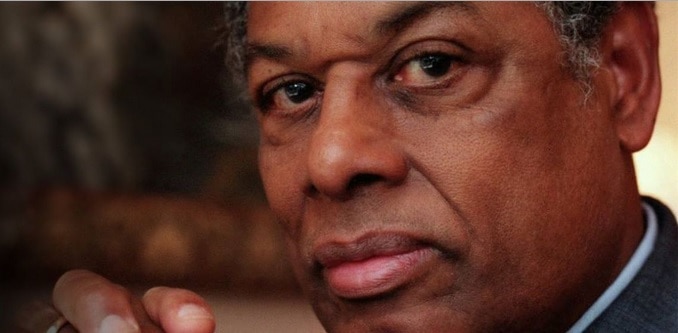






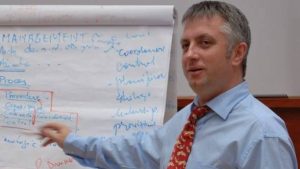



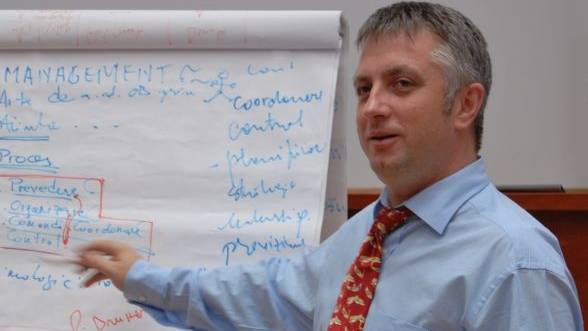
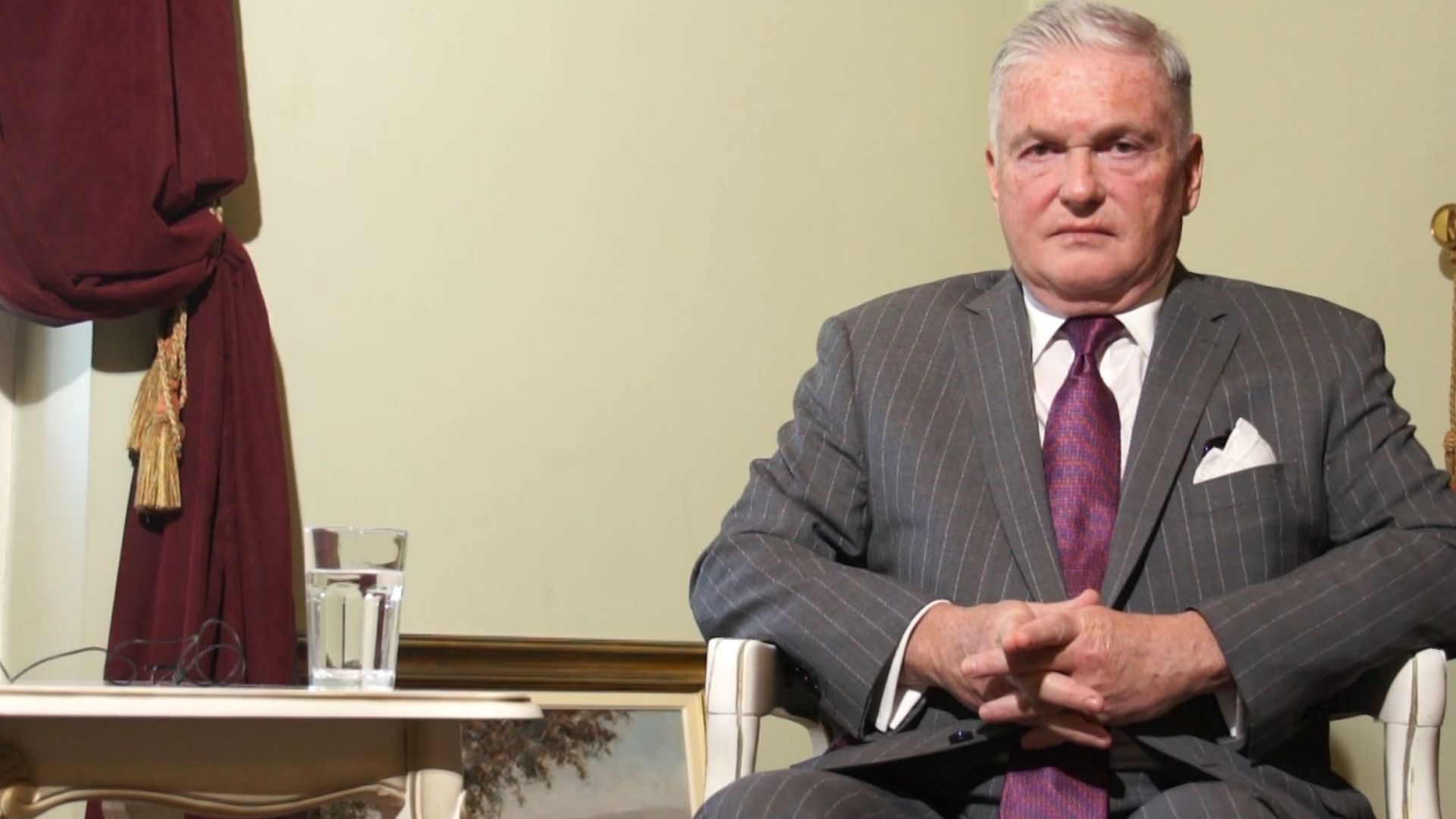



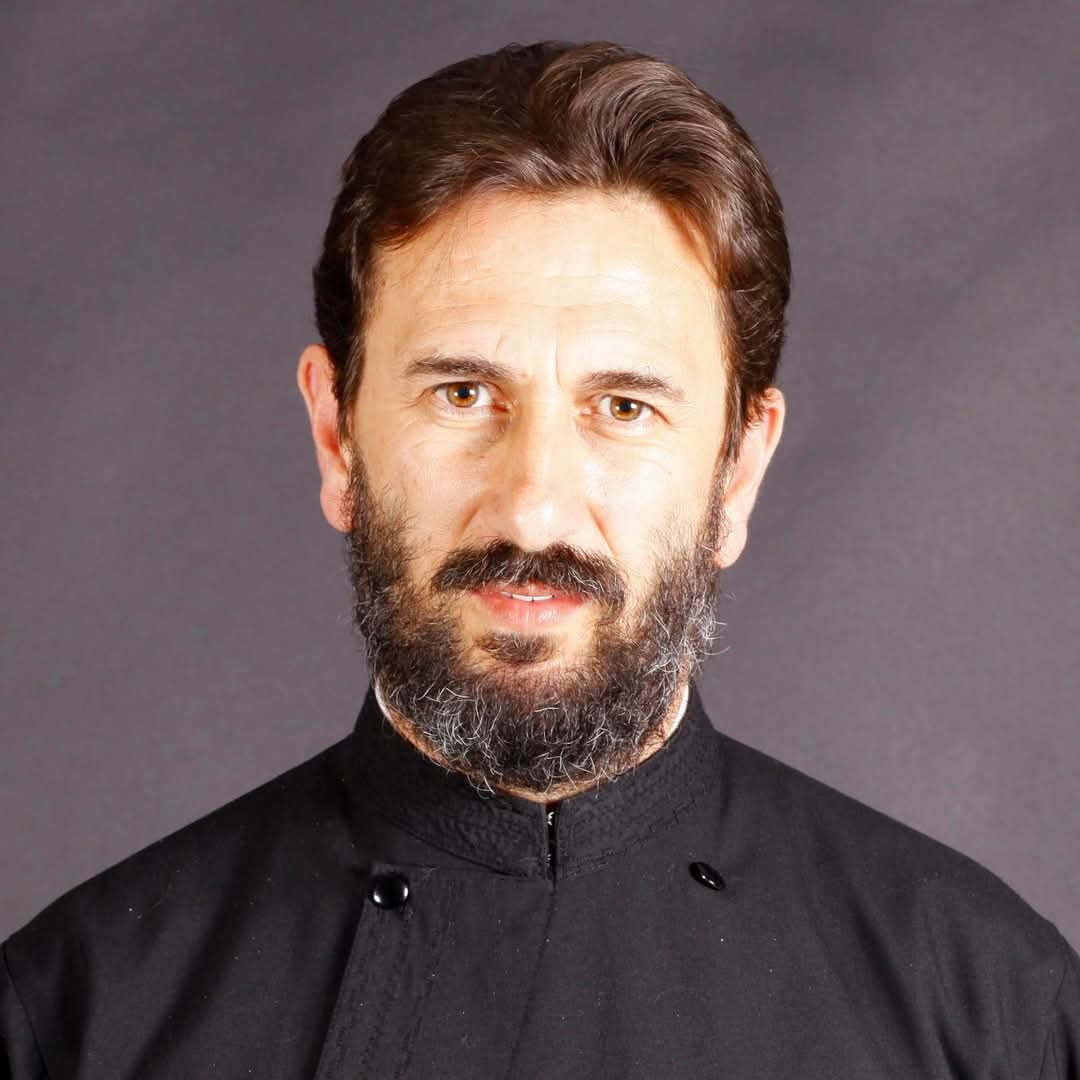



2 Comments
Costin Andrieş
22 May 2013http://www.billmuehlenberg.com/2013/05/17/the-facts-on-fatherlessness-part-one/
The Facts on Fatherlessness, Part One
“The poor fatherless baby of eight months is now the utterly broken-hearted and crushed widow of forty-two! My life as a happy one is ended! the world is gone for me! If I must live on (and I will do nothing to make me worse than I am), it is henceforth for our poor fatherless children – for my unhappy country, which has lost all in losing him — and in only doing what I know and feel he would wish.” Queen Victoria, 1861
Fatherlessness is a growing problem in Australia and the Western world. Whether caused by divorce and broken families, or by deliberate single parenting, more and more children grow up without fathers. Indeed, 85 per cent of single parent families are fatherless families.
Writing about the situation in America in 1996, sociologist David Popenoe said this: “The decline of fatherhood is one of the most basic, unexpected, and extraordinary social trends of our time. Its dimensions can be captured in a single statistic: In just three decades, between 1960 and 1990, the percentage of U.S. children living apart from their biological fathers more than doubled, from 17 percent to 36 percent. By the turn of the century, nearly 50 percent of American children may be going to sleep each evening without being able to say good night to their dads.”
And these trends are not without negative consequences. Father absence has been shown to be a major disadvantage to the well-being of children. The following is a summary of the evidence for the importance of fathers and the need for two-parent families.
One expert from Harvard medical school who has studied over 40 years of research on the question of parental absence and children’s well-being said this: “What has been shown over and over again to contribute most to the emotional development of the child is a close, warm, sustained and continuous relationship with both parents.” Or as David Blankenhorn has stated in Fatherless America: “Fatherlessness is the most harmful demographic trend of this generation.”
Another expert puts it this way: “There exists today no greater single threat to the long-term well-being of children, our communities, or our nation, than the increasing number of children being raised without a committed, responsible, and loving father.”
Bryan Rodgers of the Australian National University has recently re-examined the Australian research. Says Rodgers: “Australian studies with adequate samples have shown parental divorce to be a risk factor for a wide range of social and psychological problems in adolescence and adulthood, including poor academic achievement, low self-esteem, psychological distress, delinquency and recidivism, substance use and abuse, sexual precocity, adult criminal offending, depression, and suicidal behaviour.” He concludes: “There is no scientific justification for disregarding the public health significance of marital dissolution in Australia, especially with respect to mental health.”
A New Zealand summary of the data based on national and international research conducted over the past two decades also found major positive outcomes for children when fathers are present, and negative outcomes when fathers are absent. The report states:
“The weight of the evidence is that fathers can make unique, direct contributions to their children’s well-being. These findings held true after controlling for a range of factors, including mothers’ involvement, children’s characteristics, children’s early behavioural problems, family income, socio-economic status over time, stepfather involvement and family structure.” It goes on to list the many specific ways in which fathers positively contribute to the well-being of children.
And the importance of fathers is neither a recent nor a merely Western truth. The need and importance of fathers is an historical and universal given. As anthropologist Bronislaw Malinowski put it, “The most important moral and legal rule concerning the physiological side of kinship is that no child should be brought into the world without a man – and one man at that. . . . I think that this generalization amounts to a universal sociological law.” There may be cultural variations, yet “through all the variations there runs the rule that the father is indispensable for the full sociological status of the child as well as its mother, that the group consisting of a woman and her offspring is sociologically incomplete and illegitimate.”
Here then is a sampling of the evidence:
Economic difficulties
In America, among families with dependent children, only 8.3 per cent of married couples were living below the poverty line, compared to 47.1 percent of female-headed households.
Also in the US, a nationally representative sample found this: “In 2005, the median income for married couples was $66,067, which was $35,000 more than the median income for single mothers, $19,000 more than that of single fathers, $43,000 more than that of single women, and $24,000 more than that of single men. Married couples made up 79 percent of the highest quintile income and 17.9 percent of the lowest income quintile.”
In Australia, a recent study of 500 divorcees with children five to eight years after the separation found that four in five divorced mothers were dependent on social security after their marriages dissolved.
Figures from Monash University’s Centre for Population and Urban Research show that family break-up, rather than unemployment, is the main cause of the rise in poverty levels in Australia.
A joint report from AMP Life and Canberra University’s National Centre for Social and Economic Modelling says that divorce leaves both partners worse off economically, but women tend to experience the biggest fall in disposable income.
A recent US study “found that by far the ‘biggest factor’ associated with child poverty in a county is the proportion of households headed by unwed mothers with children under 18 years of age.” They established that every 1 percentage-point increase in these households correlates with a 1.2 percentage-point increase in the county’s child-poverty rate.
Educational performance
American children from intact families have a 21 per cent chance of dropping out of high school whereas children from broken families have a 46 per cent chance.
American school children who became father-absent early in life generally scored significantly lower on measures of IQ and achievement tests.
A recent Concordia University found clear positive effects of a father’s influence on the behavioural and cognitive development of children. For example, “for both boys and girls, fathers’ positive parental control predicted higher Performance IQ and fewer internalizing problems over six years later.”
A study of Australian primary school children from three family types (married heterosexual couples, cohabiting heterosexual couples and homosexual couples) found that in every area of educational endeavour (language; mathematics; social studies; sport; class work, sociability and popularity; and attitudes to learning), children from married heterosexual couples performed better than the other two groups. The study concludes with these words: “Married couples seem to offer the best environment for a child’s social and educational development”.
A Melbourne University study of 212 children found that fathers, even more than mothers, had a major beneficial influence on children in their first year of school. The study found that kids with regular father involvement were more cooperative and self-reliant in school than kids who did not have father involvement. The more regular involvement the father has with the child, the study’s author said, the better the child does in his or her first year of school.
Criminal involvement
A British study found a direct statistical link between single parenthood and virtually every major type of crime, including mugging, violence against strangers, car theft and burglary.
Also in the UK, studies have shown that “children from broken homes are nine times more likely to commit crimes than those from stable families” and “seven out of 10 offenders come from broken homes”.
One American study even arrived at this startling conclusion: the proportion of single-parent households in a community predicts its rates of violent crime and burglary, but the community’s poverty level does not. Neither poverty nor race seem to account very much for the crime rate, compared to the proportion of single parent families.
In Australia, a recent book noted the connection between broken families and crime. In a discussion of rising crime rates in Western Australia, the book reported that “family breakdown in the form of divorce and separation is the main cause of the crime wave”.
Maryland researchers found that bullying and aggressive behaviour are associated with family breakdown. This is especially the cause of girls’ aggressiveness: “the percentage of single men and mother-alone families rival neighborhood violence as providing the most explanatory power” for aggressiveness among girls.
Involvement with drugs and alcohol
A UCLA study pointed out that inadequate family structure makes children more susceptible to drug use “as a coping mechanism to relieve depression and anxiety.”
Another US study found that among the homes with strict fathers, only 18 per cent had children who used alcohol or drugs at all. In contrast, among mother-dominated homes, 35 per cent had children who used drugs frequently.
A National Institutes of Health study showed a clear connection between non-intact families and child drug abuse: “Our analyses indicated that children from intact families used significantly less inhalants, marijuana, and amphetamines than children from single-parent families.”
A New Zealand study of nearly 1000 children observed over a period of 15 years found that children who have watched their parents separate are more likely to use illegal drugs than those whose parents stay together.
A South African study found that teens from single parent homes were more likely to consume alcohol and do so from an earlier age. Of those who ever drank, 81 per cent of the teens aged 16-18 lived with parents who were divorced compared to 51 per cent of students whose parents were married and living together.
Sexual problems
Studies from many different cultures have found that girls raised without fathers are more likely to be sexually active, and to start early sexual activity. Father-deprived girls “show precocious sexual interest, derogation of masculinity and males, and poor ability to maintain sexual and emotional adjustment with one male”.
A US study found that girls who grow up without fathers were “53 percent more likely to marry as teenagers, 111 percent more likely to have children as teenagers, 164 percent more likely to have a premarital birth, and 92 percent more likely to dissolve their own marriages.”
Another US study made this conclusion: “youth who spend part of their childhood/youth living in a household that does not include their biological father are more likely to smoke regularly, become sexually active, and be convicted of a crime.”
New Zealand research has found that the absence of a father is a major factor in the early onset of puberty and teenage pregnancy. Dr Bruce Ellis, Psychologist in Sexual Development at the University of Canterbury in Christchurch found that one of the most important factors in determining early menarche is the father: “There seems to be something special about the role of fathers in regulating daughters sexual development”.
A British study found that girls brought up by lone parents were twice as likely to leave home by the age of 18 as the daughters of intact homes; were three times as likely to be cohabiting by the age of 20; and almost three times as likely to have a birth out of wedlock.
Part Two is here: http://www.billmuehlenberg.com/2013/05/17/the-facts-on-fatherlessness-part-two/
eugeni
22 May 2013Acelasi zeu stiinta? Ce conceptie gresita. Stiinta nu are vaori morale. Nu este de stanga sau de dreapta. Aplicatiile ei au valori morale. Legea gravitatiei exista. Sa omori pe cineva cu o piatra lasata sa cada capata valoare morala.
Adevarata stiinta a fost mai degraba valenta dreptei decat a „progresistilor”.
Daca considerati ideologia conservatoare fara stiinta mi se pare o greseala majora.